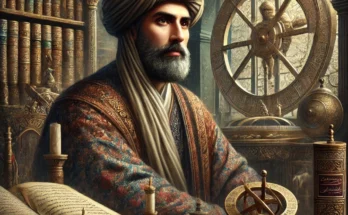Early Life and Education
Dr. Zakir Abdul Karim Naik was born on October 18, 1965, in Mumbai, India. This man, who is now famous as a recognised Islamic preacher and orator, first pursued a medical profession. He finished his initial training in Mumbai and entered Topiwala National Medical College and BYL Nair Charitable Hospital, Mumbai, obtaining an MBBS degree. But after passing that stage and possessing that degree, he decided against continuing toward his medical career along the lines of roping in into religious and inter-faith studies that would ultimately determine the contour of his life and work.
Philosophy and Approach to Da’wah
Dr. Zakir Naik’s method of Islamic preaching is based on comparative study among religions. He emphasizes several common beliefs between Islam and other major religions in such a manner as to work toward the development of brotherhood. Dr. Naik is one of the most quoted speakers, using copious scriptural references in his talks: Qur’an, Hadiths, Bible, Hindu scriptures such as Vedas, and Buddhist texts. In his speeches, he explicitly claims that his goal is to clear up various misconceptions about Islam and to bring Muslims and non-Muslims together through rational and logical discourse on factual grounds.
Dr. Naik’s style integrates science with the probe into textual evidence, thereby tackling controversial questions confronting Islam on modern questions such as evolution. For instance, The Qur’an and Modern Science is a series of lectures in which he has argued that the teachings of Islam are not only in harmony with but hold precedence over modern scientific theories. His emphasis upon compatibility between faith and reason has gained him appreciators from a scientific perspective who see in his work a rational ground for belief.
Founding of Islamic Research Foundation
Dr. Zakir Naik founded the Islamic Research Foundation in 1991 to carry out outreach work. The IRF is based in Mumbai and is intended to cultivate an understanding of Islam while offering public lectures, debates, and interfaith dialogues. The foundation supports the publication of books and media materials on Islam and furthers the recognition of Dr. Naik as quite a leading preacher.
Among its numerous contributions to Islam in its outreach and transmission, one of IRF’s noteworthy establishments was Peace TV. Peace TV broadcasted lectures of Dr. Naik in varied languages, such as English, Urdu, etc., across several countries and managed to seize a lot of popularity in countries with Muslim majorities in the Middle East and in communities across diasporas.
Publications and Global Influence
He rapidly integrated himself into the world of speakers, expanding beyond India, with a vocation extending to other countries bearing prominent Muslim populations, e.g., the Middle East, Malaysia, Indonesia, and Britain. His talks attracted large audiences and gained in stature because he tended to talk to them clear-fully and head-on about disputed issues like terrorism, women’s rights regarding Islam. He spoke on jihad, terrorism, and women’s rights in Islam. This ‘saying it how it is’ earned him considerable audience respect, even amidst heaps of objections and criticisms.
He wrote several books on many aspects of Islam and comparative religion. His publications on topics as varied as Allah and Space, or The Quran and Modern Science, where he dare challenge compatibility between Islam and modern discoveries.
Controversies and Legal Problems
A plethora of controversies have marred the otherwise charismatic rise onto which Dr. Zakir Naik finds himself. Some observers have claimed that his teachings, based on the premise of a divisive interpretation of Islam, have motivated further division rather than unity. The express polemics of his classes have been scrutinised in particular due to his occasional statements that have been charged with feeding some people’s extremism, an allegation that he always denied. After the incident of the terrorist attack on Dhaka in Bangladesh in 2016, it was claimed that some of the attackers were at least in part politically motivated by Dr. Naik’s speeches, which further led to increasing scrutiny and travel limitations for him.
Banned by India under the Unlawful Activities (Prevention) Act (UAPA) in 2016, Dr. Naik moved to Malaysia, where he was granted permanent residency. Some countries such as the UK and Canada had banned his entry after India put him under the scanner for money laundering and incitement. Dr. Naik pleads innocence, contending that his speeches are being misinterpreted.
personal life and legacy
Raised in a Mahometan atmosphere, Dr. Zakir Naik is happily married and father to children, some of whom have expressed a desire to engage with the study of Islam and enter into da’wah. His photographic memory allows him to quote endlessly from various religious scriptures, his skill above the dire necessity for arguments and lectures.
Though Dr. Zakir Naik remains a figure of contention in the world today, not disputably, his impact on Islamic evangelization and interfaith dialogue is distinguished. Differentials in opinions have risen for various proclamations—he gains praises and criticism keeping in view the involute hurdles in religious doctrine during modern times. Viewed as a scholar or a bad-boy version, Dr. Zakir Naik’s career is characterized by how interpretations of faith convolution global discussions on faith, tolerance, and modernity.



